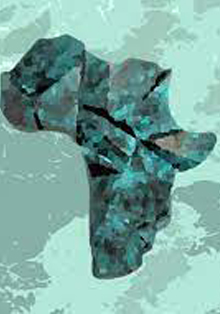Nacho Sánchez Amor
Member of the European Parliament
In the frequent and diverse tensions with China, realpolitik advises analysing the fronts and trenches from which to gain advantages, which will always be partial and provisional. For the West, China will always be a war of positions, never a blitzkrieg. That is why measured but sustained tension is preferable to a denunciatory outburst that exhausts itself in its own situation.
It is obvious that when it comes to trade and investment we should be content with a strategy of containment. But not only because of the sheer scale of the figures, but also because on this side (and even counting the EU as a single actor, which is not obvious) there are several sovereign decision-making centres and perspectives and interests do not always coincide, beyond the fear of the other side’s firepower. It is, not to insist on war metaphors, like a Real Madrid match against an occasional team of good players, competent individuals who have never trained or played together. In that kind of scenario, hard tackles like those suffered by Australia or Lithuania lower the ardour of the remaining players and retract the whole team into “locking in behind”.
But there is another front on which Western democracies should consider playing more incisively: that of ideology, narratives, the so-called “culture wars”. China is not only a steamroller with a silencer on its exhaust pipe, advancing at the expense of any obstacle and making the minimum noise necessary to do so. It is also an insidious propagandist for authoritarianism and a relentless eroding agent of the achievements of mature democracies. And all this is a far cry from the noisy Russian model, which is closer to the chainsaw than the discreet termite.
The implicit message around the pandemic, never expressed in such a frontal way, has been to underline the efficacy of authoritarian models as opposed to the public quarrels, political debates and time-wasting of democracy in its laborious decision-making system. Even the argument that these are more robust for having a grassroots social consensus seems to shudder in the face of converging anti-vaccine and anti-certificate movements, conveniently aired (oxygenated, even) by media attention that gives the submissive loudspeakers of authoritarian regimes their work cut out for them. China’s surprisingly effective campaign to build a large hospital in ten days already left the nascent mask diplomacy in its infancy. In the West, debate and uncoordination, in China, efficiency and speed.
Hong Kong is, unfortunately, another laboratory test of this slowly corrosive strategy. Because, in addition to the more frontal repressive aspects such as the National Security Law, Chinese policy is accompanied by a careful ideological campaign of rewriting history and symbolic resignification (prior censorship in school books, the removal of Tiananmen memorials, the banning of opinion articles in some critical media, the battle over the editing of the Wikipedia article on Hong Kong, the censorship of an episode of The Simpsons, etc.).
What China and other authoritarian systems do, and this has great attractive force for illiberal systems, is to portray democracy and the universal character of individual rights as a Eurocentric, neo-colonialist export that seeks to perpetuate Western intellectual dominance over the rest of the world when its political dominance has already disappeared. There is no set of rights that all people have just because they are people, wherever they live. Nor is there a single model of democracy, the Western model, but each country can have its own equally valid model, according to its political tradition, its culture, its history, its languages or its ethnic mosaic. And the history of the peoples cannot be dictated by Western universities, but rather the one that is constructed in each place by accumulating propagandistic materials, castrated visions of history, caressing nationalist sophistry and the latest generation of social engineering. The noun democracy is ill-suited to adjectives; thus any adjective (popular, organic, corporatist, socialist) must be suspected of carrying the termite’s eggs.
This is the trench in which I believe Western democracies can play unceremoniously in the relationship with China and other authoritarian actors. That of the hackneyed “narrative”, as it is now called, but which is the old ideological battle of enlightenment, rationalism, humanism and rights. China is trying out a spatial domination of the world through the export of its goods and productive capacities, but it is also deploying a subtle domination of the political narrative that legitimises this parallel effort to export ideas and worldviews. Let us contain commercial expansion within acceptable limits, but let us begin to fight more openly the battle for the famous “narrative”.
© All rights reserved






